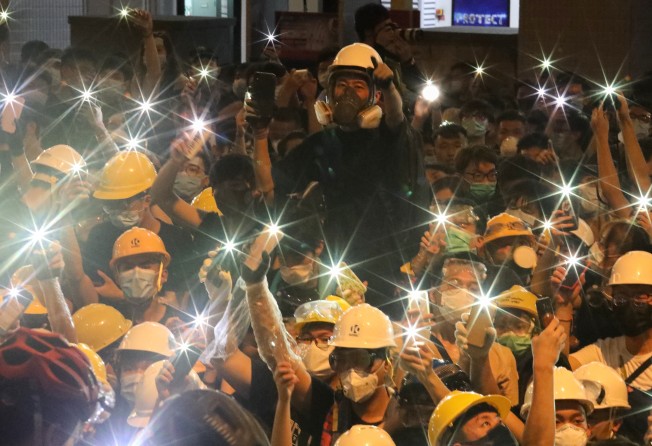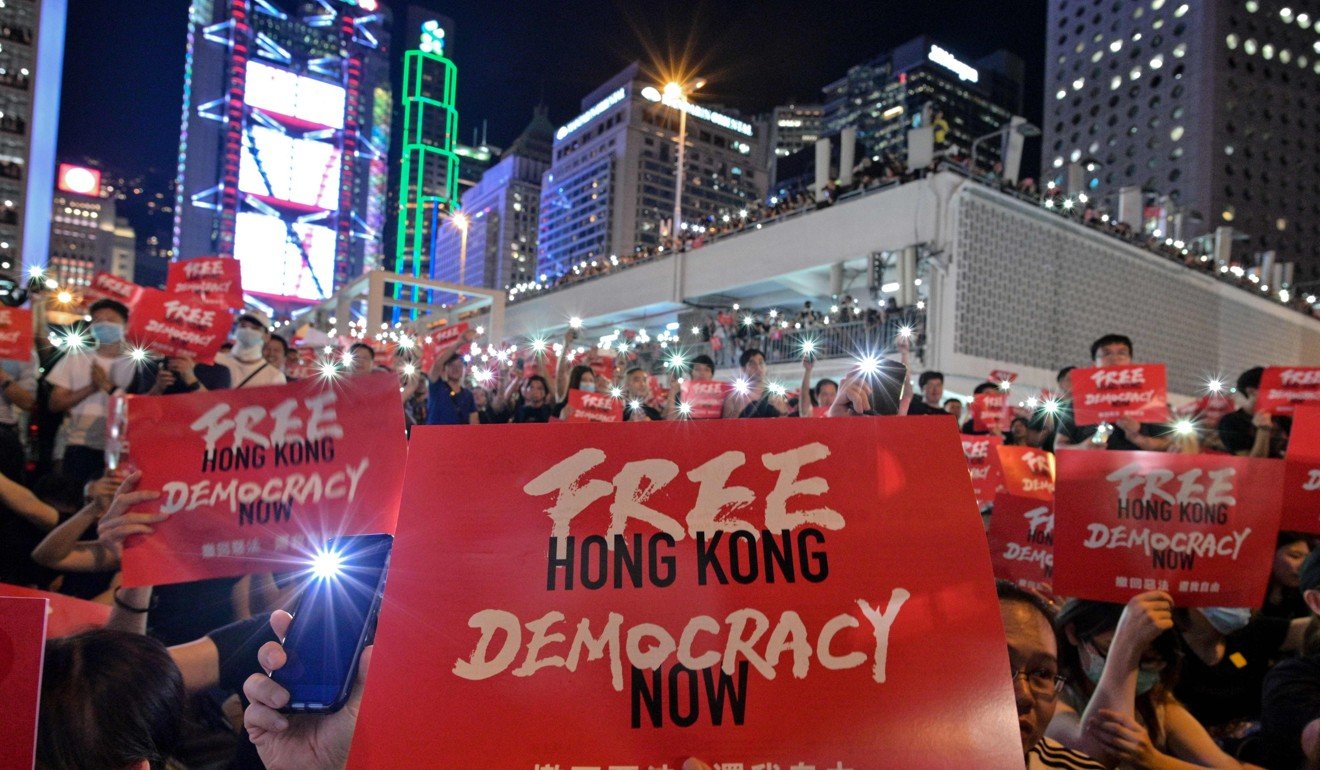How to defuse the extradition crisis: start by fixing Hong Kong’s social ills and end with democracy
- By trying to wait out the storm, Chief Executive Carrie Lam is making another error of judgment. An inquiry into the police’s response to protesters would ease tensions but, in the long run, Hong Kong’s government must be legitimised by a democratic election

Hong Kong’s extradition bill protests have caught the world’s attention. The scale and impact of the demonstrations are unprecedented in the city’s history. If Chief Executive Carrie Lam Cheng Yuet-ngor fails to defuse the political bomb immediately, she will no longer be able to lead the city.
The demands of the 2 million protesters are clear. They have urged Lam to resign, and they want the government to completely withdraw the extradition bill, retract the characterisation of the protest on 12 June as a riot, release arrested protesters and drop charges against them, as well as launch an investigation into the police’s actions.
Given that the government has put the bill on hold and stopped characterising the protest as a “riot”, the protesters have succeeded to some extent. The focus of the movement has now switched to bringing to justice the police officers who they claim used excessive force on protesters.
It was alarming to see thousands of protesters surrounding the police headquarters. If the administration fails to address their grievances, the protests are likely to escalate.
Lam has said the police has a well-established mechanism to deal with complaints – the Complaints Against Police Office (CAPO) and the Independent Police Complaints Council (IPCC). Her comments indicate that the government is not taking the situation seriously, given that people do not see these mechanisms as effective.
A CAPO investigation would focus only on the misconduct of a particular officer while the IPCC lacks investigatory powers.
To ease public anger, the government should set up an independent inquiry commission to look into the issue. However, the government, four police associations and pro-Beijing lawmakers have objected to this idea.
Former police chief Andy Tsang Wai-hung said the police should not apologise for their actions whenever the public demands it. Grenville Cross, former director of public prosecutions, has criticised the behaviour of the young protesters. Other public figures have also urged the protesters to back down, to prevent a backlash from society. This is, however, an obvious move to defend their own interests.
Lam has resorted to delaying tactics, hoping public rage will eventually die down. Again, she has exposed her lack of political wisdom.
The fact is that the public will not be satisfied even if the government agrees to set up an inquiry. After the Lamma Island ferry collision and Sha Tin-to-Central rail link scandal, Hongkongers have realised that an “independent investigation” is just a paper tiger. It is a trick the government uses to soften opposition.
The extradition bill is not the only trigger of conflict. The protests are rooted in public anger that has been mounting since the handover. The government’s incompetence in tackling the city’s long-standing problems, such as the wealth gap and lack of upward mobility, has generated despair among the younger generation, prompting them to take to the streets.
Lam must take her cue from the actions of the British government after 1966-67 riots. The administration should immediately set up an independent inquiry commission, which should file a comprehensive report on the current social turmoil. This report could serve as the cornerstone of the policy reform that must follow.
The government must then take active steps to review and update policies on all fronts – housing, education, health care, social welfare, economic development and the political system – and table practical proposals.
Most importantly, the political system must be reformed. The executive-led governance model has proven a failure under “one country, two systems” and must be abolished. Otherwise, the legitimacy of the Hong Kong government will always be challenged.

Hong Kong needs universal suffrage. The government and Legislative Council should be elected through “one person, one vote”. This is the only way to restore the authority and legitimacy of the government and put Hong Kong on the path to stability and prosperity.
To move forward, the most sensible approach would be for China to order Lam’s government to resign and to appoint a transitional chief executive. This person should review the electoral system and lead political reform, aiming to realise true democracy in Hong Kong.
A legitimate democratic government would not only make Hong Kong prosperous and stable, but pave the way for the peaceful unification of China in the long run.
Albert Cheng King-hon is a political commentator. [email protected]